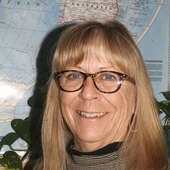- Research tips and McCook Brick Company- solid as a brick (12/16/24)
- Big Give appreciation and some railroad characters (11/15/24)
- George Randel becomes a landowner, gets married, and takes in a Buffalo Bill show (9/20/24)
- The memoirs of George F. Randel, early settler of Red Willow County (9/12/24)
- Vietnam War Memorial honors Nebraskans who served (6/13/24)
- McCook business promotions - just prior to 1893 stock market crash (5/30/24)
- Shall we dance? Meet you at the Gayway (12/8/23)
Pioneer woman recalls early hardships in Red Willow County
Friday, September 20, 2019
As you all know, my nose is often buried in the newspapers of the past searching out tidbits of information that will help us understand how very tough and resilient our ancestors were as they settled this corner of southwest Nebraska. I knew that some of the early publishers had featured columns by “Old Settlers” but never could settle on one no matter what I put in the search engine box.
Then as I was gathering information concerning C. H. Meeker, I accidentedly stumbled upon a notice by F. M. Kimmell, the publisher of the McCook Tribune, that he was about to print a reminiscence written by an early woman pioneer. He was building readership interest by lead-on stories and then on June 5, 1891, the first column appeared entitled: On The Frontier, A Reminiscent Pen’s Portrayal of Early Society.
Though the woman never revealed her identity and only referred to her husband as “J”, she was undoubtedly a woman of standing, education, and refinement. I say that to put emphasis on the fact that she left that sheltered, comfortable life, and traveled to a location with her husband to homestead. In the next few columns I am going to share with you her poignant observations of Nebraska and the life she had come to live amongst the rattlesnakes, river rats, and mosquitos.
“There is nothing small or narrow in the Western way of doing things, and when, in the latter part of 1871, The Utopia Townsite Co. sent out its advertisements, pamphlets and circulars, setting forth the unparalleled opportunities for obtaining much with little outlay, many responded, eager to secure the privileges. As soon as the spring of 1872 opened, the “colony” thus formed, set out for the promised land, about one hundred miles beyond the regular settling up of the country.
The R.R. was to be built “within a year or eighteen months at farthest”, and here would be the “machine shops and roundhouse.” The land office was to be located in the “city”, a military post established and other large schemes suggested. The town was laid out in streets and avenues and named; but it came to pass that the great expectations of the Company failed to materialized and the only occupants of the corner lots were prairie dogs, owls and rattlesnakes. Murmurings were heard among the disappointed and it soon became like the old nursery jingle, “some flew east, some flew west, and some flew over the cuckoo’s nest”. Yet two or three remain unto this day. There is no longer any frontier; the county is thickly settled, towns are all on the R.R., which did not come up the valley in ten years instead of one. To these later comers – their coming made possible by the endurance of the old settlers – the hardships and privations through which we passed seems incredible and I am so often urged to write about these days that I shall try to tell something of what one woman went through in settling the country.”
“We left Kentucky in April 1872, reaching Nebraska City on April 28th, where we remained about three weeks, getting an outfit and provisions and making ready for our future home. I understood afterwards the interest and pity manifested by those with whom I was thrown. They knew!
But, with me it was a cae where “ignorance is bliss”, I, a bride, brought up in one of the most exclusive parts of Kentucky, to go as a “homesteader” away out on the frontier was an undertaking from which many would shrink. A faculty for idealizing was a help then and ever after. On May 15th we started, - two wagons. In one, was the owner, who was also one of the original Townsite Co., two very young men, a Bostonian, and a day later were joined by another of the Co., who was afterwards State Superintendent of Public Instruction. In ours were J., likewise one of the Co., and myself and all our earthly possessions, except one box which was in the other wagon and our sewing machine which was left until a more suitable time.
Utterly inexperienced, I had everything to learn, and the Bostonian and I were the “tenderfoots” of the company.”
To be continued in my next column.

